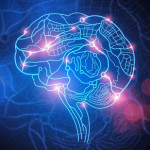Anterior Cingulate Cortex and Hippocampal Volumes in Depressed Youths

Major depression disorder is a mental health condition in which unrelenting feelings such as sadness, hopelessness, anger, or frustration persist for prolonged periods of time and interfere with a person’s daily life. Although major depression arises most commonly in early adulthood, anyone can develop major depression disorder, including children and teenagers. While depression has been…
Obesity and Hippocampal Atrophy

Recent data shows that worldwide obesity has more than doubled since 1980. In 2014, almost 2 billion adults were overweight and of these, over 600 million were obese (World Health Organization). Evidence indicates that obesity is not only a major risk factor for conditions such as cardiovascular diseases, diabetes, and musculoskeletal disorders, but also a…
The Cerebello-Limbic Pathway: a Link between Mind and Body?

Strong evidence supports the connection between mind and body and most neuroscientists agree that cognitive activity and movement are powerfully connected. The first evidence of such a linkage originated decades ago and eventually redrew the concept of cognitive function, the intellectual process by which one becomes aware of, perceives, or comprehends ideas. The cerebellum, a…
Hippocampal Volume Measurement and Memory Loss

Memory is a highly constructive cognitive process that takes place in our everyday lives and consists of encoding, storing and retrieving information. Our memory is not located in one particular place in the brain, but is instead a brain-wide process during which several different areas of the brain act in conjunction with one another. One of the areas that plays…
Occipital Bending: the Physical Cause behind a Mental Health Disorder?

Brain asymmetry refers to the asymmetrical function and structure of the brain. Each hemisphere is specialized in certain tasks and specific areas process particular types of cognitive information. Structurally, the two halves of the human brain are slightly different, in fact some structures may be larger or smaller on one half of the brain than…
Hippocampal Atrophy in Critically Ill Patients

Critically ill patients may suffer delirium, encephalopathy or other neurobehavioral abnormalities, often with lasting effects. This is thought to be a result of systemic inflammation which compromises the blood brain barrier and leads to neural damage. The hippocampus is particularly sensitive to inflammatory and hypoxic change, both common sequelae to acute severe illness and/or chronic…
 AnalyzeDirect
AnalyzeDirect